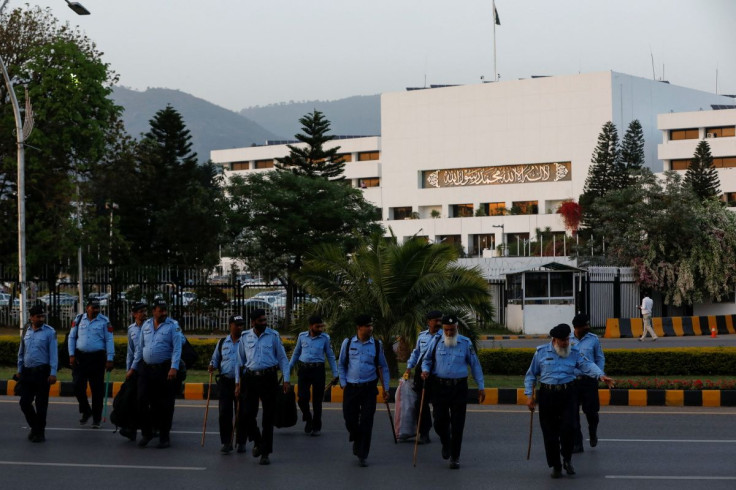No-confidence Motion Moved In Pakistan Parliament In Bid To Remove PM Khan

Pakistan's parliament took up a no-confidence motion moved by opposition lawmakers on Monday in a bid to remove Prime Minister Imran Khan, pushing the South Asian nation closer to political turmoil.
The house will begin a debate on the motion on Thursday and a vote is to be held within seven days.
"The prime minister ceases to hold his office after he has lost the confidence of this house," opposition leader Shehbaz Sharif said, reading from the no-confidence motion telecast live on television.
The move comes as Pakistan faces a recurring economic crisis, with Khan's government banking on the International Monetary Fund to release the next tranche of a $6 billion rescue package to shore up dwindling foreign currency reserves.
Khan, 69, a former captain of Pakistan's national cricket team, lost a parliamentary majority with a series of defections from his party, and a united opposition is calling on him to step down. He has vowed to fight to stay put.
Khan has blamed a foreign-funded conspiracy for trying to topple his government. China is a long-time supporter and Pakistan, a traditional ally of the West, abstained from voting as the U.N. General Assembly overwhelmingly reprimanded Russia for invading Ukraine.
Nearly 20 defections in Khan's ruling party and cracks in his coalition partners have made him short of the 172 votes, a simple majority, needed to hold on to power.
To try to survive, the government announced it would give the post of chief minister of the country's largest province, Punjab, to one of its coalition partners.
But another ruling coalition party decided to join the opposition, making the opposition stronger with 168 votes.
The opposition and analysts say the prime minister has fallen out with the powerful military, which mostly determines who will rule, a charge both Khan and the military deny.
© Copyright Thomson Reuters 2024. All rights reserved.





















